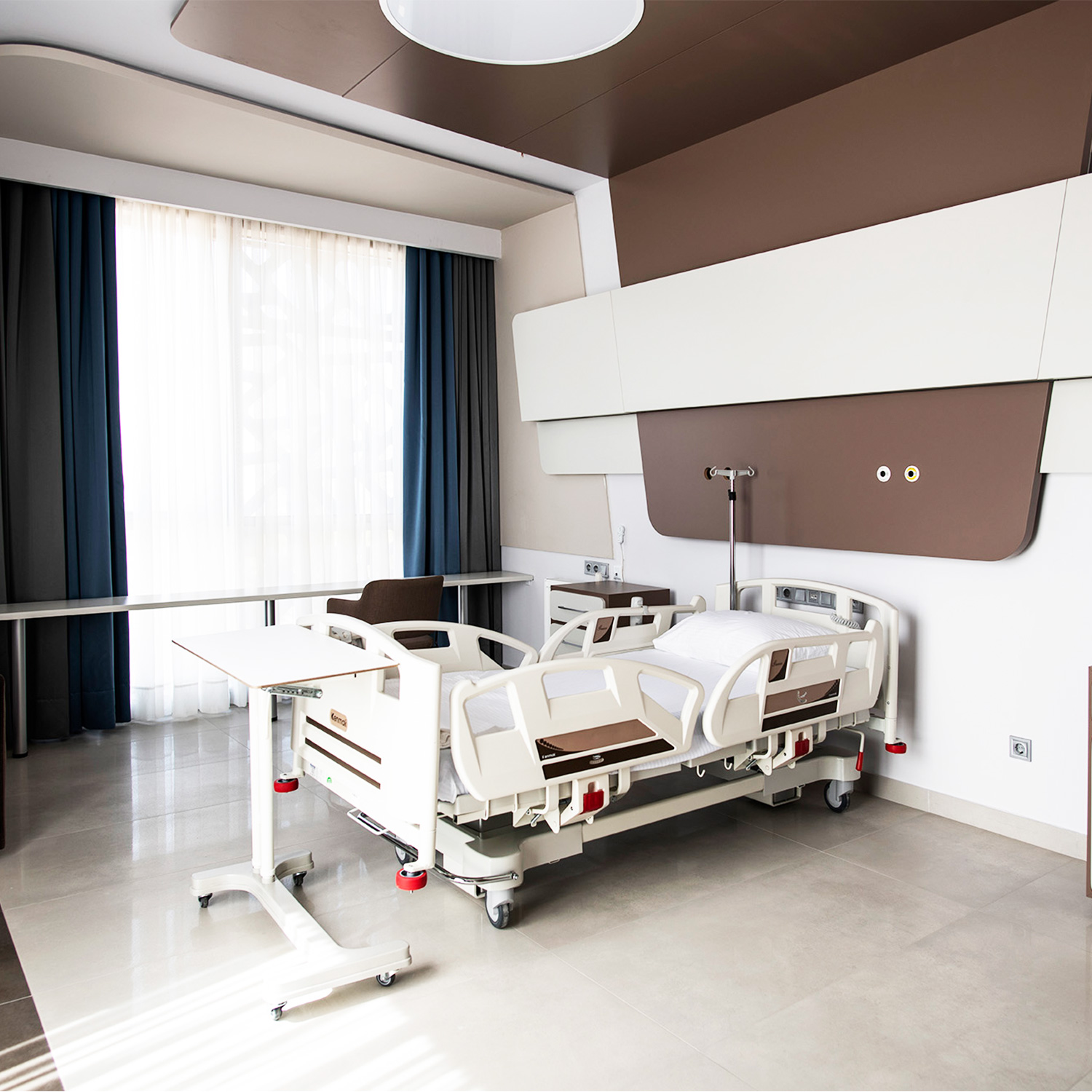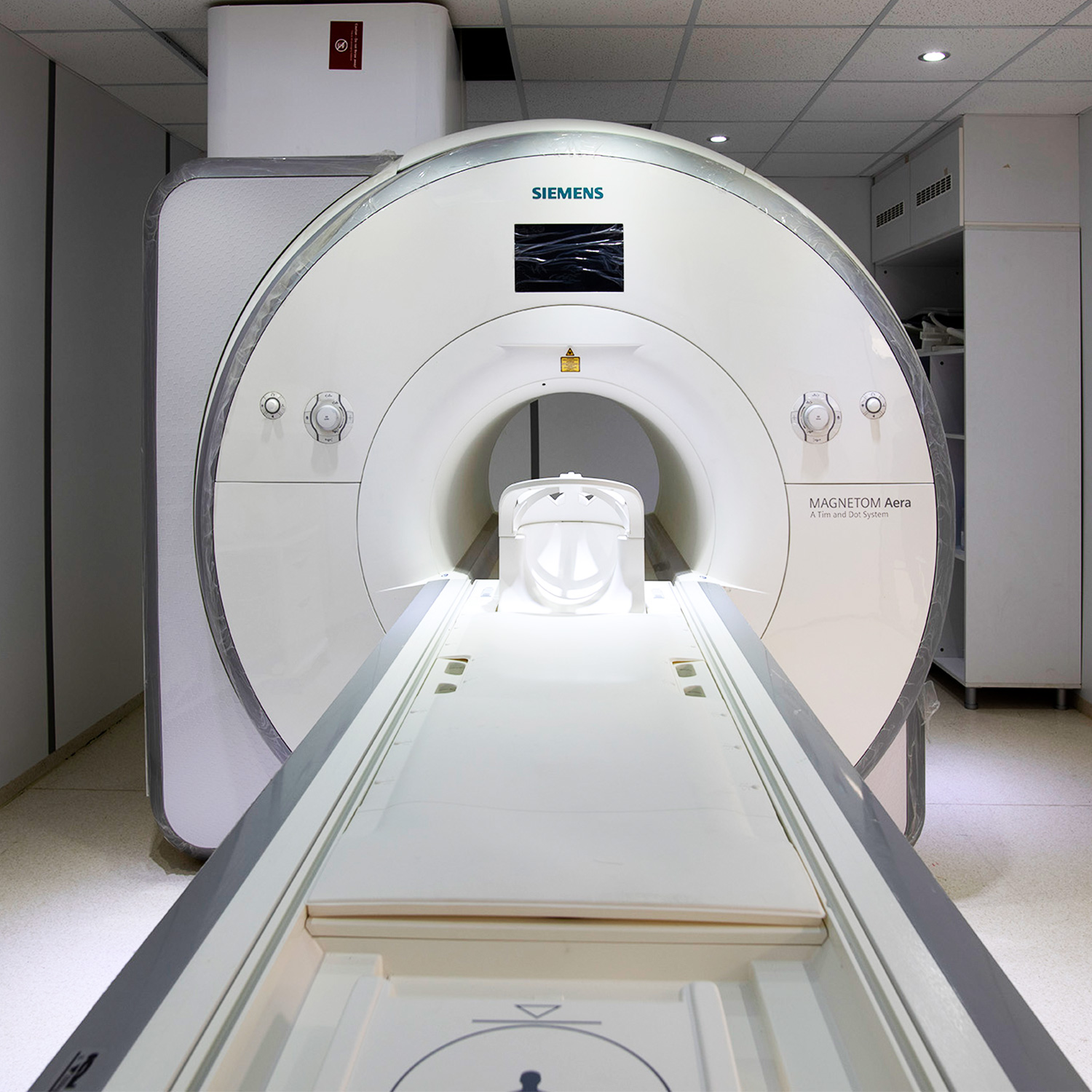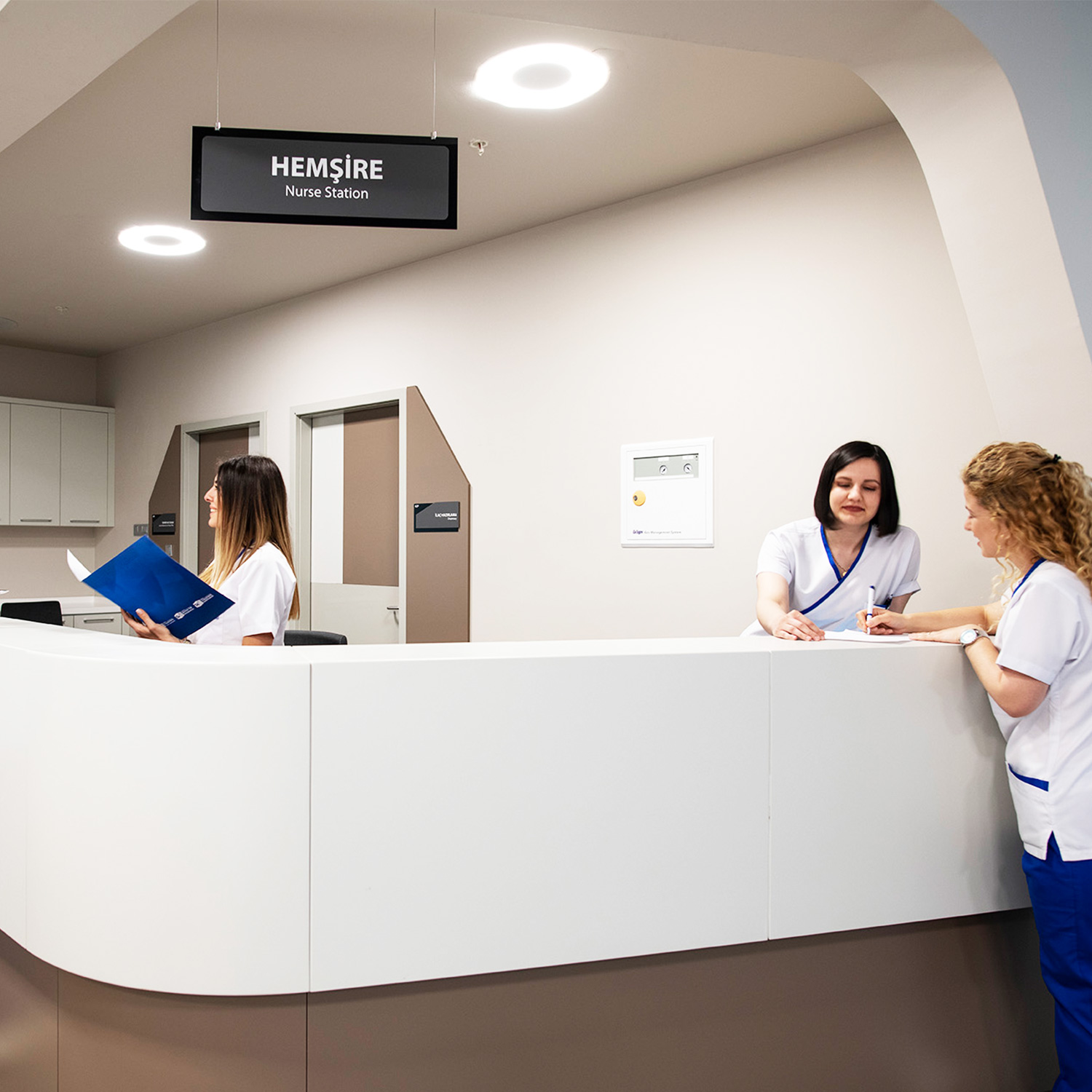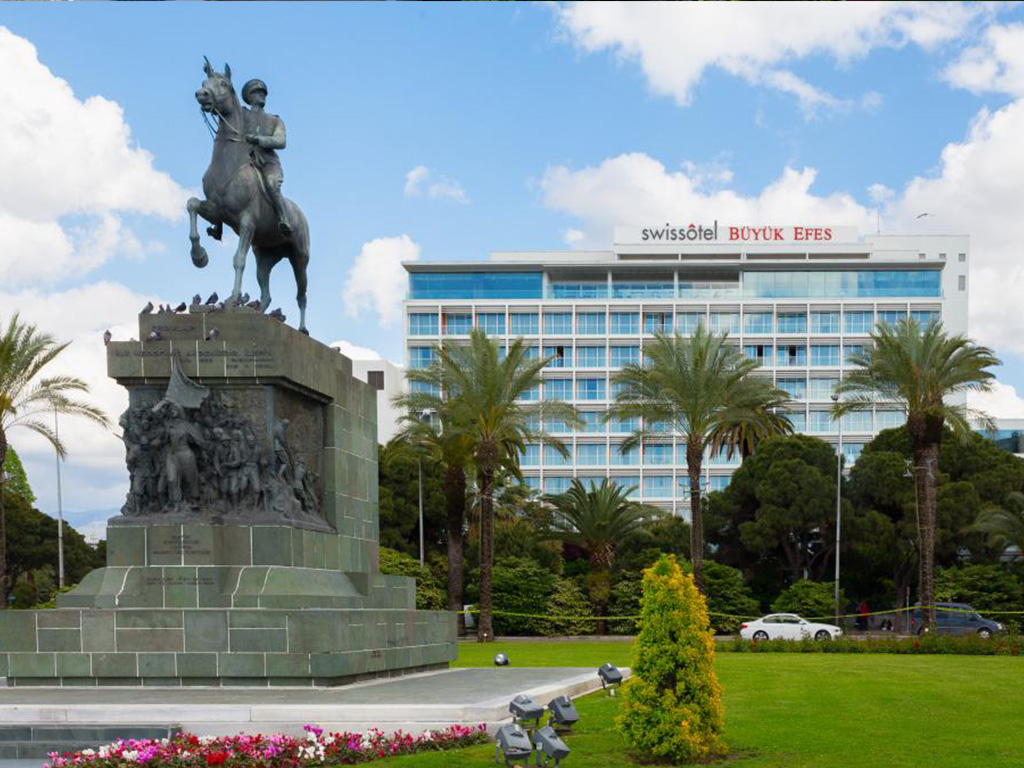Sleeve Gastrectomy
What Is Sleeve Gastrectomy?
Sleeve gastrectomy is the most preferred type of surgery among obesity interventions. It is a safe and an effective intervention for weight control. During the operation 75-80% of the stomach is removed and the volume of the stomach to reach between 80-150 ml. Thus, the stomach becomes a tube, reducing food intake and restricting portion sizes. At the same time, Fundus, secretes appetite hormones, is removed during the operation, so the patients’ appetite decreases after the operation, resulting in rapid and safe weight loss.
Sleeve gastrectomy is the most preferred type of surgery among obesity interventions. It is a safe and an effective intervention for weight control. During the operation 75-80% of the stomach is removed and the volume of the stomach to reach between 80-150 ml. Thus, the stomach becomes a tube, reducing food intake and restricting portion sizes. At the same time, Fundus, secretes appetite hormones, is removed during the operation, so the patients’ appetite decreases after the operation, resulting in rapid and safe weight loss.



To Whom Is Sleeve Gastrectomy
Performed?
Gastric sleeve surgery is recommended for individuals between the ages of 18-65, having at least two previous experience in weight control and whose BMI is >40 kg/m2.
Another patient group includes patients with a BMI between 35 and 39,9 kg/m2, having obesity-related comorbidities (hypertension, diabetes, insulin resistance, sleep apnea, etc.) and unsuccessful weight loss experience.
While non-operative treatment methods are priority in patients with a BMI between 30-35 kg/m2, the current surgical decision should be evaluated in detail for the patient and should not be decided solely on the basis of BMI value.
Another patient group includes patients with a BMI between 35 and 39,9 kg/m2, having obesity-related comorbidities (hypertension, diabetes, insulin resistance, sleep apnea, etc.) and unsuccessful weight loss experience.
While non-operative treatment methods are priority in patients with a BMI between 30-35 kg/m2, the current surgical decision should be evaluated in detail for the patient and should not be decided solely on the basis of BMI value.
How Is Sleeve Gastrectomy Performed?
The the first option is to perform it laparoscopically through general anesthesia. The inside of the abdomen is evaluated by entering 0.5-1 cm from the abdominal wall through the first openings with a camera and micro-instruments. By adjusting the stomach volume with a calibration tube, specially developed disposable stapling materials are used and a new stomach volume is created. After bleeding and leakage control, second row sutures are placed to reduce the possibility of possible complications.
How Long Does Sleeve Gastrectomy Take?
Although the duration of the operation varies according to the anatomical structure of the patient, the duration of the operation varies between 45 minutes and 1.5 hours. However, the time to return to the service bed with pre-operative preparations and post-anaesthetic recovery is 2.5 to 3 hours. Patients generally do not need intensive care after the standard procedure. However, if necessary, close follow-up in the intensive care unit for one night may be appropriate in patients with co-morbid health problems. The patient can get out of bed four to six hours after returning to the service bed and is able to meet their basic needs. Complaints such as pain, nausea and spasm on the day of surgery can be controlled with intravenous drugs.
How Does Sleeve Gastrectomy Work?
There are two main ways. The first is the restriction of food intake by reducing the volume of the stomach, and the other is the reduction of the hormone Ghrelin. Secreted from the removed part of the stomach, it concerns the appetite of the person. So the patient, gets full with less food, has a decreased appetite, and they can lose at least 70-80% of their excess weight with the appropriate nutrition and exercise program. At the same time, in scientific studies, the increase of insulin sensitivity hormones such as intestinal-derived GLP-1 also plays a role in metabolic weight loss.
What Are The Risks Of Sleeve Gastrectomy?
If it goes untreated, obesity is a predisposing factor for over 70 co-morbidities, including cancer. When the patient achieves effective weight control with bariatric surgery existing health conditions recover, and possible health problems are prevented.
Bleeding is the most common problem that can occur after Sleeve Gastrectomy surgery. However, the use of a hose called a drain, which evacuates blood and fluids, helps to follow up of possible bleeding. With early intervention, treatment can be provided with serum and blood supplementation.
The risk of embolism, intravascular coagulation, increases more after bariatric surgery than all surgeries. Therefore, blood thinner needle therapy before and after the surgery and stockings and compression devices preventing clot formation in the surgery are used.
Gastric staple line leaks are potentially risky problems, and they are one of the most frequently asked health conditions. In case of leakage, the patient has abdominal pain, fever, chills, palpitations, and general condition deterioration. If it is detected, it ensures early intervention and short treatment time. To prevent it, a leak test is performed during and after the operation, the second row of stitches is placed on the staple line, and if there is a concomitant disease or medicine that increases the possibility of leakage and impairs wound healing, staple line strengthening material is used.
Bleeding is the most common problem that can occur after Sleeve Gastrectomy surgery. However, the use of a hose called a drain, which evacuates blood and fluids, helps to follow up of possible bleeding. With early intervention, treatment can be provided with serum and blood supplementation.
The risk of embolism, intravascular coagulation, increases more after bariatric surgery than all surgeries. Therefore, blood thinner needle therapy before and after the surgery and stockings and compression devices preventing clot formation in the surgery are used.
Gastric staple line leaks are potentially risky problems, and they are one of the most frequently asked health conditions. In case of leakage, the patient has abdominal pain, fever, chills, palpitations, and general condition deterioration. If it is detected, it ensures early intervention and short treatment time. To prevent it, a leak test is performed during and after the operation, the second row of stitches is placed on the staple line, and if there is a concomitant disease or medicine that increases the possibility of leakage and impairs wound healing, staple line strengthening material is used.
Diet After Sleeve Gastrectomy
During the hospital stay after the operation, intravenous serum support is given. If everything is alright in the first 24 hours after the surgery, clear liquids such as water and apple juice and food intake are started. During the following, six to eight weeks, the transition from liquid food to solid food, which is shaped according to the patient’s tolerance of foods, is followed. This process is shaped by dietitians according to the current state of the patient. Protein supplements are used for the first four weeks. During this period, water consumption has vital importance. Portion restriction and attention to solid-liquid separation are essential.
Sports After Sleeve Gastrectomy
Mobility is crucial in the earliest postoperative period. In-home walks are recommended for the first two weeks after surgery. After the third week, daily outdoor walks should be started on a flat and non-sloping area. In the fourth to six weeks, gradually increasing resistance exercises and weight training after the eighth week can be started. It should be kept in mind that regular exercise is essential for obtaining healthy and permanent results after surgery.
All Inclusive Package
No Hidden Costs.
All your transfers to your Hospital, Hotel and to the Airport with our V.I.P vechiles
No waiting list
Perfect Service
A World-Class Hospital
No Hidden Costs



Start Your Journey
You have the willpower. Get the weight-loss.
Satisfaction
Success Rate
Travel Satisfaction
Gallery
Hospital
Gallery
Swissôtel























